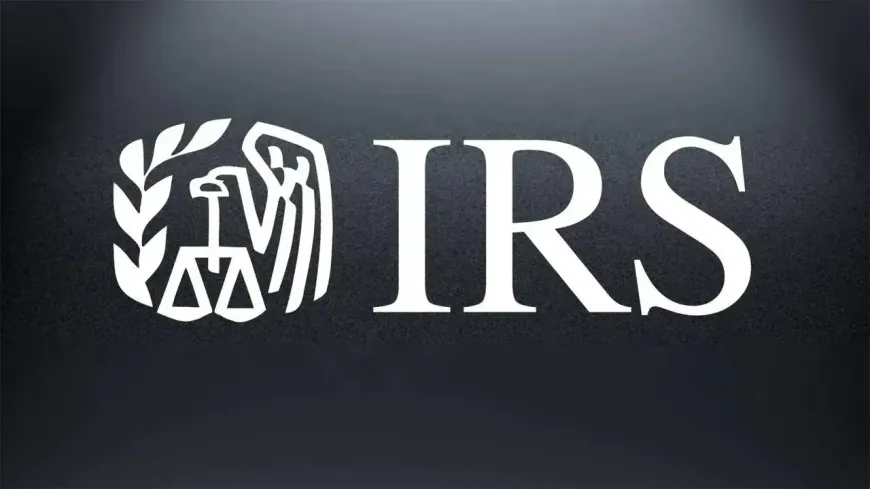IRS Expands Cryptocurrency Surveillance: Key Updates for Traders and Exchanges
IRS broadens crypto enforcement with John Doe summonses and blockchain analytics targeting major exchanges. Traders must prepare for stricter tax compliance.

The Internal Revenue Service (IRS) has significantly widened its surveillance of cryptocurrency activity, moving from targeted audits of individual traders to broad investigations affecting major exchanges and millions of users nationwide. Legal experts say the move marks a turning point in the government’s approach to digital assets, signaling that cryptocurrency tax compliance is now a high-priority enforcement area.
Since 2017, the IRS has utilized John Doe summonses to obtain account information from platforms including Coinbase, Kraken, Circle, and Poloniex. These summonses allow the agency to request records for an “ascertainable class of persons” without proving tax violations for each individual. According to attorneys specializing in crypto taxation, this strategy enables the IRS to uncover patterns of noncompliance across entire exchanges rather than focusing on isolated cases.
Crypto Asset Seizures and Audit Trends
The IRS’s enforcement efforts have already resulted in billions of dollars in cryptocurrency seizures. In fiscal year 2021, the agency reported $3.5 billion in crypto-related asset seizures, representing over 90% of total IRS confiscations. This surge in enforcement underscores the growing scrutiny on digital currency holders and the increasing stakes for noncompliance.
The IRS’s strategy combines third-party exchange data with blockchain analytics, allowing agents to trace transactions across multiple wallets in real-time. The Treasury Inspector General for Tax Administration (TIGTA) reported that by June 2023, the IRS had opened 216 formal examinations and issued nearly 15,000 “soft letters” to crypto users identified through exchange data.
“Cryptocurrency is no longer a lightly regulated niche,” said David Klasing, a CPA and tax attorney specializing in digital assets. “The IRS has developed sophisticated tools to detect underreporting and is systematically expanding its reach to ensure compliance across the sector.”
New Reporting Rules and Compliance Challenges
Beginning in 2025, the IRS will require 1099-DA forms, reporting gross proceeds from crypto sales, with cost-basis reporting for covered securities starting in 2026. Experts caution that discrepancies across multiple exchanges, wallets, and decentralized protocols could still trigger notices or audits even for compliant traders.
Nick Waytula, head of tax at Crypto Tax Calculator, noted, “These new reporting obligations raise the bar for both exchanges and individual investors. While the system aims to reduce misreporting, incomplete records or aggregation errors can still result in penalties or audits.”
Legal challenges to the IRS’s authority have largely been unsuccessful. In July, the Supreme Court declined to hear a case challenging the IRS’s John Doe summonses for Coinbase trading records, effectively confirming the agency’s broad investigative powers over crypto transactions. Coinbase and privacy advocates had argued that such access constituted an unconstitutional intrusion, but courts have consistently ruled that third-party records can be obtained without violating privacy rights.
Impact on Exchanges and Investors
The expanded IRS oversight is reshaping compliance requirements for both crypto exchanges and investors. Platforms are now expected to implement robust reporting, recordkeeping, and anti-money laundering protocols. Dmitri Alexeev, CPA and tax partner at Aprio, said, “The IRS’s approach reflects an increased focus on platform accountability. Exchanges must improve internal controls, reporting systems, and analytics to mitigate regulatory risk.”
Individual investors, meanwhile, are advised to maintain detailed transaction records and be prepared for potential audits. Misreporting—even if accidental—could trigger penalties or, in extreme cases, criminal referrals. Analysts emphasize that as crypto adoption grows, IRS scrutiny is likely to become a permanent fixture, making compliance a critical factor in market participation.
IRS Oversight Tightens for Crypto Exchanges
Even after the Trump administration removed the DeFi broker reporting rule, centralized cryptocurrency exchanges must continue submitting detailed transaction data to the IRS. This includes trade records, deposits, withdrawals, and transfers, giving the agency a full view of investor activity.
Legal experts note that the IRS now combines this exchange data with on-chain transaction tracking to detect discrepancies. In recent audits, taxpayers have received notices when their reported gains did not match exchange records, even when no fraud occurred.
David Klasing, a CPA specializing in crypto taxation, emphasized: “Investors must maintain precise records of each trade, including cost basis and transaction dates. Missing or mismatched information can trigger audits or penalties.”
Industry insiders say the IRS’s approach is already influencing how exchanges operate. Platforms are tightening KYC procedures, improving transaction tracking, and preparing for the upcoming 1099-DA reporting system, which will include gross proceeds and basis information for each investor starting in 2025–2026. For crypto traders, staying compliant is no longer optional; it directly affects their risk of audit and exposure to fines.
Also Read: Analyst Predicts Bitcoin Will Triple to $333K by 2030

































































